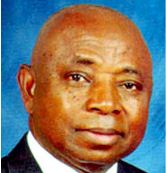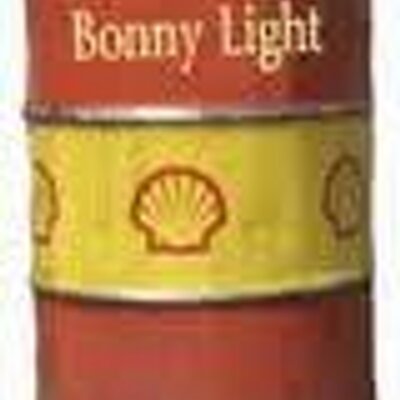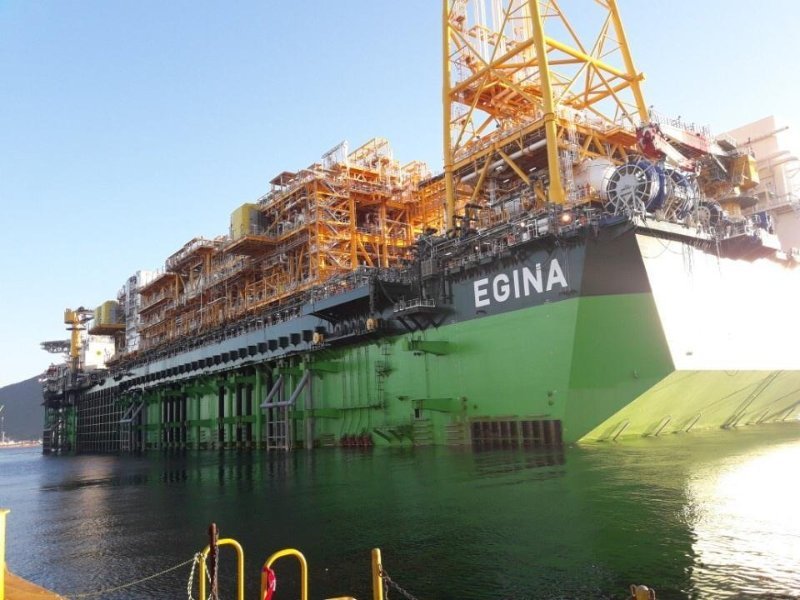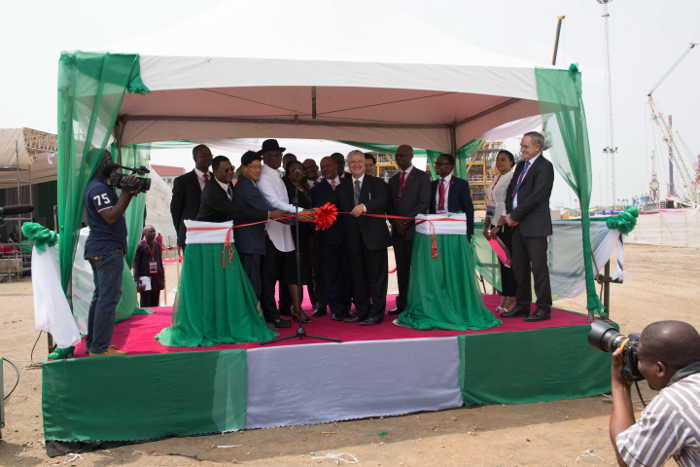
Chief Sylverius Okoli is the Executive Chairman of West Africa Bitumen Emulsion Co. Limited, WABECO, and Safeco Sierra Leone Limited (former Shell Sierra Leone).
WABECO, whose revenues is now in excess of £145 million offers services in all petroleum-related disciplines from the treatment of oil and gas, gas utilisation, gas re-injection and flare-out, to power generation and natural gas liquids extraction, and is also involved in exploration, drilling, processing and exporting, with various plants and facilities inside and outside the country.
In this interview with Clara Nwachukwu, Okoli speaks about developments in the downstream petroleum sector, and his company’s resolve to weather all storms, to remain an efficient and effective indigenous player, and successes in its incursion to the West Coast.
Excerpts:
For years, government has continued to regulate activities in the downstream sector of the petroleum industry, despite cries for deregulation; do you think the sector has fared well under the current dispensation?
When it is a regulation that will stifle the supply and demand balance then it is no longer a good option. I do not subscribe to deregulation as such, but market forces must be allowed to play in finally determining the cost of an action.
What I mean by not subscribing to full deregulation is that you can make the rules, which allow for equity, balance, meeting the costs but one has to realize that the government has an objective and has a priority.
In trying to meet that objective and priority, there might have to balance by cutting the flesh from somewhere in order to pad the bone somewhere else. If for instance, education becomes the prime objective, then government has to find money for education, it has to train people through the teaching art and provide infrastructure for.
To derive the money for these purposes, it has to tax certain areas of the common good. So sometimes, you find that in Britain, as rich as they are, they are taxing petrol very heavily and people are still buying it, realising that they are getting other things like good roads, portable water, education etc.
In the Nigerian situation, we are not even talking about taxing, but about removing the subsidy, and then if you remove the subsidy, how will people be able to afford energy from their meager salary? Then we said, this is our God-given resource, why should anybody take it.
Then some other people argue that this tax that is taken out, you promised to put it on roads, but we don’t see the roads; then again you don’t know whether to support the policy or not because the government sometimes, does not perform as they advertise that if we take this money, we will provide you with good roads, transportation. They then take the money and people get disenchanted and so they don’t support the policy at all.
By and large, there is no reason why government should continue to subsidise fuel. The reason is that the subsidy itself does not get to the targeted community as we all know.
At the end of the day, it ends up in a few pockets and this same money get completely out of the reach of the common man. Since we don’t have the means to control this subsidy, because once you put subsidy in place, you are subsiding a bottomless pit, because you are not only subsidizing th Nigerian economy but also all the people around us at the same time, and where are we getting the funds from, from the only source of income generating commodity, the oil.
So to this extent, even if we don’t have to put on any tax, government should not be subsidizing petroleum at all.
This will save us cost of control; it helps to reduce corruption or graft that is attendant that is controlled and in short supply.
I will like that we opt for deregulation, but I will also like government to look at ways and means of controlling the income that comes out of it, so that it get s to the right channel. And if you want to fund education, you then have to find other means of supporting it, and not through depriving it or by subsiding petrol.
The issue of deregulation appears to be more political than economic, why is this so?
It is a political issue, otherwise I don’t see why after all the good noise that had been made through advertisements and debates, people should have by now seen the reason for it. Why this is not happening is only because it is being politicized.
Marketers also appear to double speak because even though they say they want deregulation, secretly some of them are kicking against it because the subsidy system pays them more because of product importation?
Yes, it is through that some people are making good out of subsidy, but I think they also feel that they could have done better if there was a level playing field.
So it is a question of because I am benefiting and the other is not, I don’t mind supporting the control so that I can continue to benefit from it. But I think that is greed because for the generality of marketers, and for the sake of providing a level playing field, deregulation is the option.
So it should be taken as the marketers position that deregulation is the best option for the system. The fellow that is benefiting today because he is privileged to have people in positions of power, should realize that he will benefit more in the longer run, maybe not to the extent of today, even though they appear to be benefitting, will be unhappy if the system is deregulated and it is also good for everybody because they standard will certainly rise, competition will be in full force because people will have to work for their money and we will now begin to target not just national standard, but international standards.
While we continue to toy with deregulation, Nigeria continues to indulge in high level of petroleum products importation because the refineries are not working. When you weight the basics, can you really say that Nigerians are benefitting from the system?
Of course Nigerians are not benefitting from the system when the refineries are almost comatose and everyday they queue up, and every now and gain, a tanker blows up and so many other negative activities and clearly, Nigerians can’t be benefitting from it because people are dying from accidents due to bad roads and bad tankers.
All these are happening because there is not enough money available either to repair the roads or there is not enough margins for the marketer to put up a tanker that is road worthy.
All these things are happening because of the controlled subsidy economy. So there is no way Nigerians can benefit except there is a clear statistical information saying so many people have died because of kerosene explosions, fighting for availability, this many have died because of bad roads and if this information are given and they are properly focused to allow a free market and good service environment, Nigerians are certainly the worse for it.
Do not the fact that they pegged petrol at N65/litre, but are they really getting the product at this price at the end of the day? Do they have to go through all that pains to get it for N65/litre?
Whereas, if they get it for N100/litre they can consume less at the end of the day, and are spending less because if the system is better, they can use public transport and spend less be happier for it.
It is often said that the downstream is the mirror of the petroleum industry. But the mirror the larger Nigeria, which is the masses can see is that the downstream is the quick money avenue and that is why you have a lot of players who are not really adding value, given that many borrowed from the banks and run the companies aground. Should this be so?
It is because the barrier for entry is very low. Even though the standards have been set by the DPR, but they are not being strictly adhered to by operators.And when you want to pass the blame to DPR, you ask: is the DPR sufficiently equipped to monitor these controls? Again, if the whole of Nigeria is going to put pressure on a small unit like that, what do you expect because something has to give?
So the downstream should not really be seen as a good mirror for the Nigerian oil industry; because undoubtedly, it has given room for the Local Content policy to appear to be working, but there are things that no sooner than the government insists on safety, health and security issues and anybody new or old in the system must comply and once that standard is set, every player must comply.
If you are already an existing player, you will be given time to comply, and if you are a new one, then you cannot come in unless you have met those standards.
This means that you must equip the DPR and PPPRA and everybody involved in regulation, which is where it is required most, and not in finance by clamping on them, when the regulation should be on enforcing standards then we can say the downstream is a good mirror of the industry.
Talking about setting standards, during the tenure of Dr. Edmund Daukoru, he banned the issue of licence for the construction of depots at Ibafon, Apapa, but years after the ban, many more depots have sprung up in the area such that congestion is now a mild way of describing the scenario there. What can be done to save the situation?
It is true there was this pronouncement and it is also true that new depot have cropped up since then, but it has helped, because if that pronouncement wasn’t made or not attempt made, by now the whole coastline and the entire Apapa will be overrun by one depot or the other.
The ban has helped a little, but again, this is because the registration as a marketer is taken as just a mere having of a silo, haven got a DPR licence and you operate.
One will say that more stringent application and standard should be applied in order to ensure that all those coming In meet the requirements like having adequate truck parks and the proper environmental impact assessment must be applied. The restriction or embargo is good, but what is wrong is the enforcement of it.
But you will notice that a lot of the marketers are beginning to expand to Calabar and even after outside of Nigeria, in abid to fully supply the country.
What needs to be done on government side is providing a good draft by dredging the Calabar Channel, for instance the River Niger and removing all the barriers in Warri to decongest Lagos and move down the coast.
So the government will have to help with additional infrastructure for dredging and port facilities, whilst the DPR continues to insist on set standards be enforced.
One would expect that under the prevailing circumstances, marketers would tend more towards mergers, but that is not happening?
When we were moving to Calabar, we formed a company that will pool a large number of marketers into developing a mega storage infrastructure, but before we could go half way, people were already more concerned about how they will get an edge over the other.
They were already afraid that the next player might outwit them, so there is no trust yet in the Nigerian business environment. By merger, you reduce your overheads, your unit cost is down and the system becomes more efficient and the public will benefit more.
So attempts are being made, but lack of trust is militating against it. Another attempt is being made by a group of marketers to have a common joint aviation depot in Ikeja – the Joint Hydrant Depot, but it has been lingering now for over five years.
And almost half way, some parties are already pulling out of the venture. So there is still the Nigerian feeling of – I must get it before the other, I want to benefit more, I want to suppress the other person is the only problem. Otherwise, pooling together is a necessary way of getting cheaper services.
But government may have to come in and help by making roads and given encouragement for such activities so that we can get better services and help reduce cost to the common man.
This lack of acquisition and mergers has given the impression that the downstream is not as distressed as marketers would want the public to believe. Is the downstream distressed?
Certainly, who wants to only present the challenges is not likely to tell you all the advantages derivable from it. It is certainly not a distressed market or to say the downstream is an unprofitable venture, it is an area crying out for injection of funds to raise the infrastructure requirements.
If margins are necessary, it is also left for the marketers to be prevailed upon to apply this margin for the purpose they are meant, which will then save lives, help safety of operations and people are still talking about getting products from the filling stations.
But nobody is talking about how do we ensure safety by making sure that there is no fire outbreak, making sure that the quality if services are right then you need more money to get it to happen.
In a situation where profits are not being made, any margin becomes a profit. There is a margin but there is no profit as such. If there is profit, margin will be applied to do what it is supposed to do. So although it is not a distressed market, it is also not a profitable market



